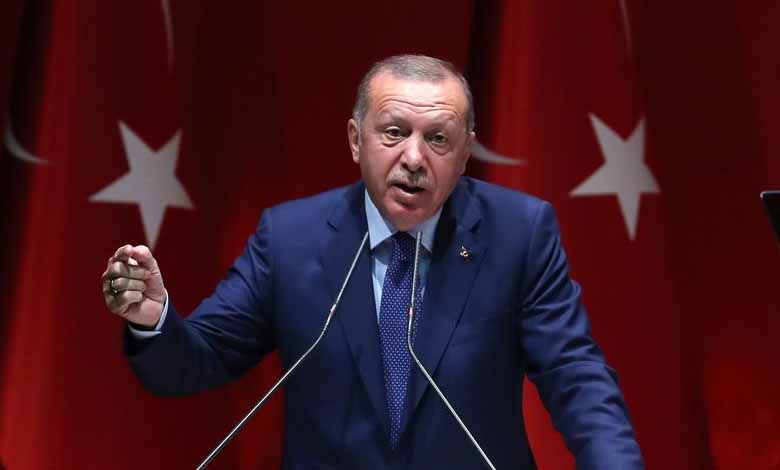Bloomberg: Erdogan in trouble and best-case scenario leads to chaos

With next year’s presidential election approaching, Turkey faces one of the worst economic crises in its modern history, with President Recep Tayyip Erdogan facing his biggest challenge since coming to power in 2002.
Erdogan’s Dilemma
Bloomberg, the US news agency, said that with elections in Turkey approaching, there was little chance of tackling runaway inflation and protecting the lira. The Turkish Central Bank acted on President Recep Tayyip Erdogan’s orders and cut interest rates to 14 percent from 19 percent late last year, giving the government a chance to keep borrowing costs stable since then even after inflation rose to nearly 80 percent, causing the world’s most negative real interest rates to appear.
According to the news agency, Erdogan does not agree with investors and economists that monetary policy should be reversed to ensure that the price hike is slow and the lira is less vulnerable. But even if Erdogan sets aside his conviction that high interest rates increase inflation, the political calendar leaves him little room to work. High interest rates may lead to a recession. With elections scheduled for June 2023, the chances of raising interest rates are slim, which means that the best scenario for Erdogan is to enter a state of chaos without a full explosion of inflation, the sale of the lira, or a severe economic recession.
Collapse of the Turkish lira
According to the Turkish website “Ahval”, the beleaguered lira, which suffered from the currency crises late last year and in 2018, is heading towards its sixth monthly loss in a row due to concerns about rising inflation and monetary policy. The lira has traded on a decline of 0.3% to 17.85 dollars on Tuesday, continuing its fall during July to 6.5%, as the currency lost more than a quarter of its value this year after its decline by 44% in 2021, and Turkey suffers from unbridled inflation that reached 78.6% in June, the highest level since 1998.
Robin Brooks, chief economist at the Institute for International Finance (IIF), said : The crises in Turkey and Argentina in 2018 led to contagion in other emerging markets, but that will not happen now because the two countries do not receive inflows of foreign portfolios and are essentially cut off from world markets, analysts told Reuters this week. The lira is sliding slowly to reach the dollar’s exchange rate of 18 lira, and sales could continue unless Turkey finds a new source of foreign funds to boost its depleted foreign exchange reserves, they said. There is also uncertainty about whether companies will decide to largely adhere to the special accounts, which are protected by the state-backed lira, known as KKM, and which were introduced in December.












